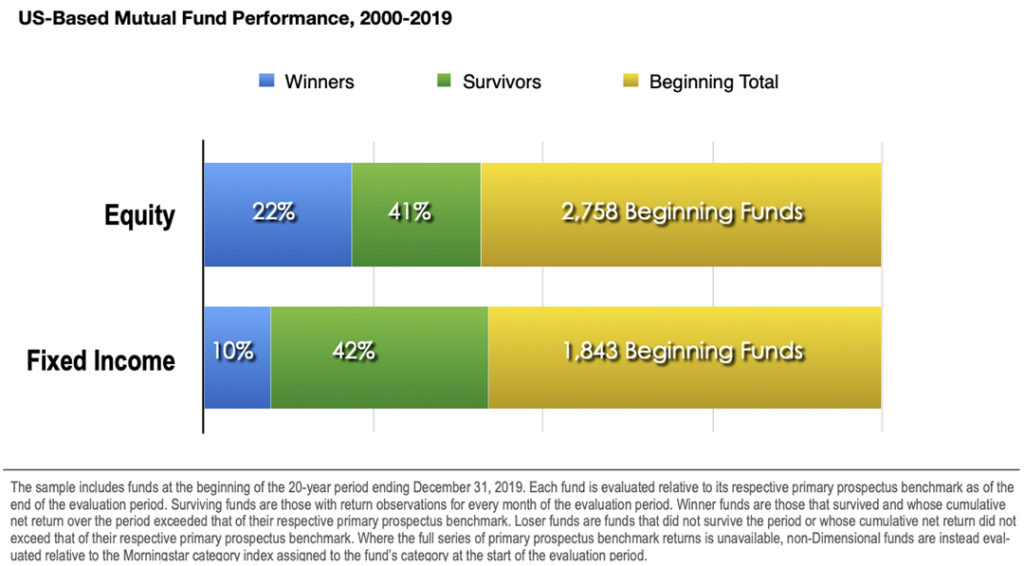Don’t Try to Outguess the Market
The competitive landscape makes the search for future winners a formidable challenge. Confronted with so many fund choices—and lacking an investment philosophy to inform their search—some investors will resort to using track records as a guide to selecting funds, reasoning that a fund manager’s past outperformance is likely to continue in the future. Does this assumption pay off?
Longer track records do little to help investors identify future outperforming funds. Some fund managers might be better than others, but they are hard to identify in advance using track records alone. Stock market returns contain a lot of noise, and impressive track records often will result from good luck.
One way to compare mutual funds is to look at how those funds perform against their index. Fund managers try to actively pick stocks that will outperform while the index simply takes all stock in the category.

Survival of the Fittest
The market’s pricing power works against mutual fund managers who try to outperform through stock picking or market timing. If we look at the chart above, you will see that only 22% of US equity mutual funds outperformed the market over the past 20 years. This proves it is difficult to outperform, but it also proves it is incredibly difficult to pick a successful manager. What is even more shocking is 59% of mutual funds in existence in 2000 did not even survive. A majority of professionals that have dedicated their lives to finance cannot survive the market.
We see similar numbers with in fixed income with 10% outperforming and only 42% surviving.
What to do? Since past performance offers no guarantee of a successful investment outcome in the future, investors should consider other variables, including a mutual fund’s underlying market philosophy, investment objectives, strategy, and total cost.
